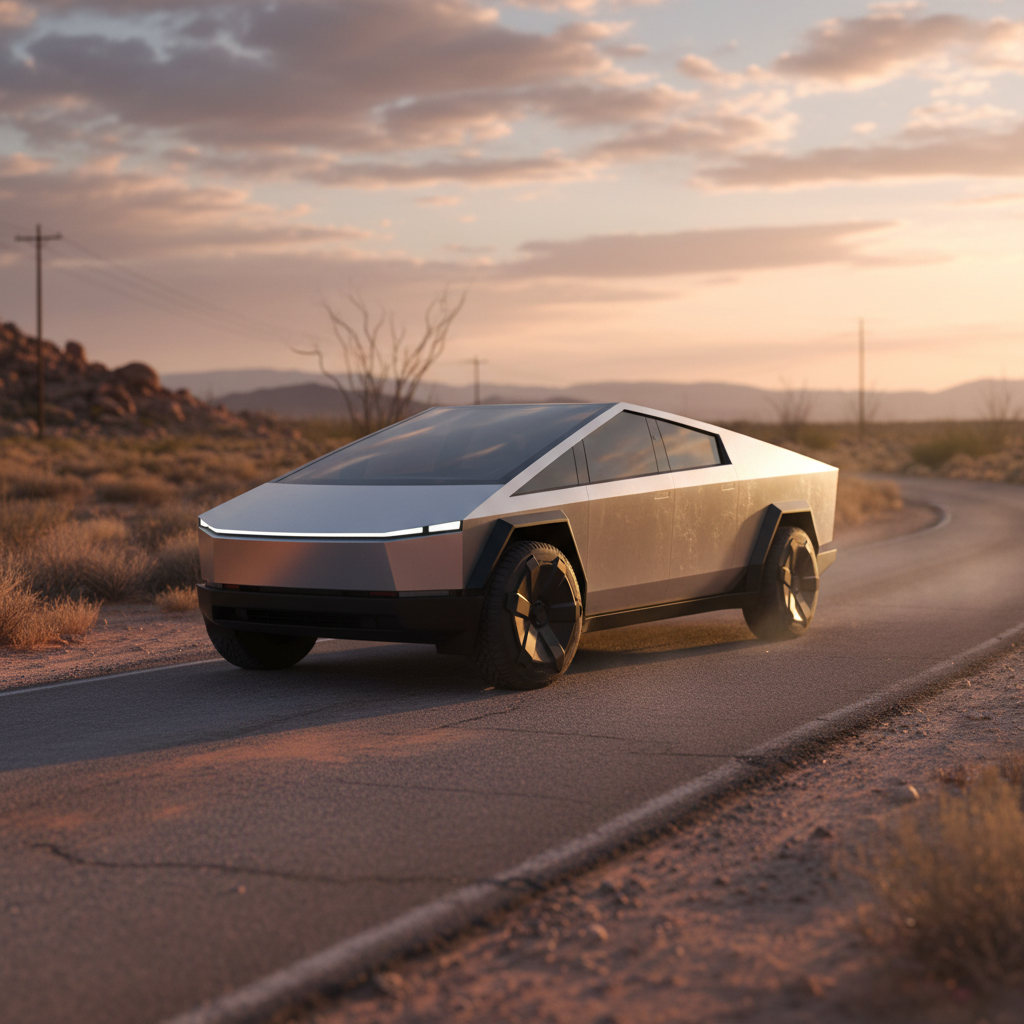If you’ve been typing “Toyota pickup for sale near me” into every car site you can find, you’re not alone. Toyota trucks have a hard-earned reputation for durability, strong resale value, and everyday usefulness, whether you’re hauling mulch on Saturday or commuting on Monday. The trick isn’t finding a Toyota pickup; it’s finding the right one, at the right price, without inheriting somebody else’s problems.
Quick take
Why Toyota pickups are so popular in 2025
Toyota’s formula for its pickups hasn’t changed much in decades: overbuilt drivetrains, conservative engineering, and just enough tech to feel current. That’s why you’ll see first‑gen Tacomas still working hard with 250,000+ miles on the clock, and why late‑model Tundras with their strong V8 or twin‑turbo V6 engines are so sought after on the used market.
Toyota pickup demand at a glance
What that means for you: the Toyota badge doesn’t magically make a truck trouble‑proof, but it does mean you’ll have a large pool of trucks to choose from, strong parts availability, and excellent long‑term resale, if you pick carefully and verify condition.

Tacoma vs. Tundra: Which Toyota pickup fits your life?
When you punch in “Toyota pickup for sale near me,” most of what you’ll see in the U.S. boils down to two models: Tacoma and Tundra. Both are good; they’re just good at different things. Start by getting brutally honest about how you’ll use the truck 80% of the time.
Tacoma vs. Tundra at a glance
Both are excellent; one will fit your daily life better.
Toyota Tacoma (midsize)
Best for: City driving, light towing, trail use, smaller garages.
- Easier to park and maneuver
- Lower running costs and better fuel economy
- Plenty of off‑road trims (TRD Off‑Road, TRD Pro)
- Bed is smaller, payload and towing are more modest
Toyota Tundra (full‑size)
Best for: Frequent towing, big families, long‑distance freeway miles.
- More power and higher tow ratings
- Roomier cabs and wider beds
- Thirstier at the pump, larger footprint
- Newer models use twin‑turbo V6 or hybrid powertrains
How to decide in 30 seconds
How to search “Toyota pickup for sale near me” the smart way
There are more listings than ever for used Toyota trucks, local dealers, national classifieds, online‑only marketplaces, even auction sites. The problem isn’t volume; it’s noise. Here’s how to turn that chaotic search bar into trucks you’d actually buy.
Step‑by‑step search strategy
1. Start with a clear budget range
Decide on a realistic out‑the‑door number (purchase price plus taxes and fees). Then work backward into a monthly payment target if you’re financing. This keeps you from falling in love with a TRD Pro that’s $10,000 out of reach.
2. Filter by body style and drivetrain
Choose “pickup,” then pick cab style (Double Cab, CrewMax) and bed length that match your needs. If you live with snow, gravel roads, or tow often, select 4WD/AWD only so you don’t waste time on 2WD trucks you’ll regret.
3. Use year and mileage sweet spots
For value, look for trucks about 3–7 years old with documented service. On Tacomas and Tundras, that often means 60,000–120,000 miles, well within their comfort zone but significantly cheaper than brand‑new.
4. Sort by ‘best match,’ not just price
The cheapest Toyota pickup for sale near you isn’t always the best. Listings that surface first when you sort by relevance or “best match” often combine fair pricing with clean history and decent equipment.
5. Prioritize vehicles with history reports & photos
Skip vague listings with two blurry photos and no Carfax or history info. A seller who won’t show you the truck clearly online is unlikely to be more transparent in person.
Watch for keyword traps
Pricing: What a used Toyota pickup really costs
Because Tacomas and Tundras hold their value so well, sticker shock is common the first time you shop. You’ll see nearly‑new 2025 Tacomas in the mid‑$30,000s and well‑optioned Tundras easily into the $60,000s. That premium can pay you back later at resale, but only if you buy sensibly now.
Typical used Toyota pickup price ranges (2025 market)
Approximate asking‑price ranges you’re likely to see when you search nationwide. Local prices will vary.
| Model / age | Typical mileage | Ballpark asking price | Notes |
|---|---|---|---|
| 2022–2025 Tacoma | 5k–40k miles | $34,000–$48,000 | High demand; TRD Pro and hybrids sit at the top of the range. |
| 2016–2021 Tacoma | 50k–120k miles | $24,000–$35,000 | Often the sweet spot for value and modern safety tech. |
| 2009–2015 Tacoma | 120k–200k miles | $12,000–$22,000 | Still very usable; inspect carefully for frame rust and maintenance. |
| 2022–2025 Tundra | 5k–40k miles | $45,000–$65,000+ | Turbo V6 and hybrid models carry a premium, especially in higher trims. |
| 2014–2021 Tundra | 60k–150k miles | $26,000–$45,000 | Known for durability; 2014–2016 are frequent reliability standouts. |
| Older Tundra/Tacoma | 180k+ miles | $8,000–$18,000 | Can be solid work trucks if maintained, but condition matters more than model year. |
Use these ranges as ballparks, then compare against condition, mileage, and trim.
Think in ‘total cost to own,’ not just price
Used Toyota pickup buyer’s checklist
Once you’ve narrowed down a few promising listings, it’s time to look past shiny paint and big tires. Here’s a practical checklist you can use whether you’re crawling around a Tacoma in your driveway or reviewing an inspection report from a distance.
Walk‑around and test‑drive checklist
Confirm VIN, title status, and recalls
Match the VIN on the truck to the paperwork and history report. Look for a clean title (no salvage or flood branding) and check that open recalls, especially frame‑corrosion campaigns on older trucks, have been addressed.
Inspect frame and underbody for rust
Surface rust on bolts is normal; deep scaling, flaking metal, or soft spots on frame rails is not. Pay close attention to older Tacomas and Tundras from rust‑belt states where road salt is common.
Check for uneven panel gaps and overspray
Large gaps, mismatched paint, or overspray on rubber seals can hint at prior accident repairs. A clean Carfax is good, but your eyes and a paint‑thickness gauge tell the rest of the story.
Listen for suspension and steering noises
On the test drive, drive over imperfect pavement and through a parking lot at low speed with the windows down. Clunks, knocks, or wandering steering deserve a closer look on a lift.
Evaluate the engine and transmission feel
Cold start is key: the truck should fire quickly without excessive ticking or smoke. On the road, shifts should be smooth, with no slipping or harsh jolts. Modern 10‑speed automatics should feel decisive, not confused.
Verify features and technology
Test 4WD engagement, locking differentials (if equipped), driver‑assist systems, cameras, and infotainment. Replacing or retrofitting modern tech can be surprisingly expensive.
How Recharged helps with this step
Common issues and red flags on used Toyota pickups
Toyota trucks have a well‑earned reputation for reliability, but no vehicle is perfect. The key is knowing which issues are routine wear‑and‑tear and which are deal‑breakers, or at least negotiation material.
- Frame rust on older Tacomas and Tundras: Especially trucks from snowy states and coastal regions. Severe corrosion is expensive or impossible to fix correctly.
- Neglected transmission and differential service: Many trucks tow or go off‑road. Old fluid can accelerate wear, particularly on newer multi‑gear automatics.
- Aftermarket lift kits done on the cheap: Quality components and good alignment are fine; hacked‑together lifts with mismatched tires can destroy ride quality and suspension parts.
- Heavy towing beyond the truck’s rating: Hints include an oversized hitch, worn brake components, and evidence of trailer brake controllers on a small Tacoma.
- Flood or storm damage: Musty smell, corrosion in hidden places, or unexplained electrical gremlins are your cue to walk away.
When to walk away
Toyota pickups and the shift toward electric trucks
One more wrinkle: the truck world is starting to electrify. Toyota is experimenting with hydrogen‑powered Tacoma concepts and electric versions of the Hilux abroad, while pure‑electric compact trucks from new brands are lining up for U.S. streets. At the same time, the used EV market has matured, with more data than ever on how batteries hold up over time.
Why a traditional Toyota pickup still makes sense
- You tow or haul often in areas with limited fast‑charging.
- You need a truck that can easily be refueled on long work days.
- Your region has extreme temperatures and limited EV infrastructure.
- You plan to keep the truck for many years and value proven mechanicals.
Why you might cross‑shop a used EV with Recharged
- You mainly commute and do light hauling within a predictable daily range.
- You want lower fuel and maintenance costs plus smooth, quiet torque.
- You live where public charging and home charging are easy to access.
- You like the idea of a verified battery‑health report before you buy.
Recharged specializes in used electric vehicles, pairing each car with a Recharged Score battery‑health report, transparent pricing, and nationwide delivery. If your “Toyota pickup for sale near me” search is really about finding a capable daily driver with a bed, a used EV crossover or truck could be a smarter long‑term play.

Financing, trade‑ins, and buying a Toyota pickup online
The way you buy a used Toyota truck in 2025 doesn’t have to look like a full Saturday at the dealership. Online approvals, digital paperwork, and at‑home delivery are rapidly becoming normal, especially for EVs, but the same smart‑shopping principles apply no matter where you ultimately sign.
Big decisions: how you’ll pay for your truck
Line up the money before you fall in love with a specific VIN.
Get pre‑qualified early
Check rates with your bank or credit union and compare them to dealer or online‑marketplace offers. Being pre‑qualified, often with no impact to your credit, lets you shop trucks, not just monthly payments.
Factor in your trade‑in
If you’re coming out of a gas SUV or older truck, its value can be a powerful down payment. Many platforms, including Recharged, offer instant online offers or consignment options so you can unlock that equity.
Consider a fully digital purchase
Buying online with home delivery is common with EVs, and more dealers are offering the same for gas trucks. As long as you can review a detailed inspection report, history, and plenty of photos or video, a digital transaction can save time and pressure.
If you’re EV‑curious
FAQ: Shopping for a Toyota pickup for sale near you
Frequently asked questions
Bottom line: How to buy with confidence
When you search for a “Toyota pickup for sale near me”, it’s tempting to chase the first shiny Tacoma or Tundra that pops up. Resist that urge. Decide what you really need the truck to do, understand the price ranges in your market, and be ruthless about condition, history, and inspection results. Toyota trucks have earned their reputation by working hard for a very long time, but only if you choose carefully.
If you’re also curious about how an electric vehicle might fit into your life, take a spin through the Recharged marketplace. Every used EV we sell includes a Recharged Score battery‑health report, fair‑market pricing, financing options, trade‑in support, and nationwide delivery. Whether you end up in a Tacoma, a Tundra, or a torque‑rich EV, the goal is the same: a truck that fits your life today and still makes sense years down the road.



